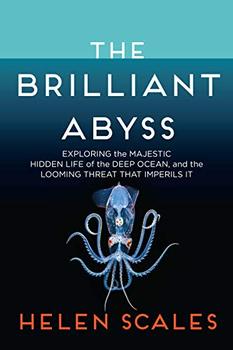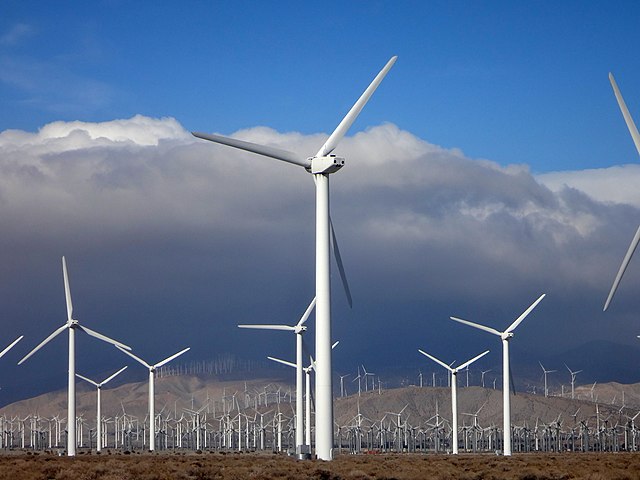Summary | Excerpt | Reviews | Beyond the book | Read-Alikes | Genres & Themes | Author Bio

Exploring the Majestic Hidden Life of the Deep Ocean, and the Looming Threat That Imperils It
by Helen Scales"The oceans have always shaped human lives," writes marine biologist Helen Scales in her vibrant new book The Brilliant Abyss, but the surface and the very edges have so far mattered the most. "However, one way or another, the future ocean is the deep ocean."
A golden era of deep-sea discovery is underway. Revolutionary studies in the deep are rewriting the very notion of life on Earth and the rules of what is possible. In the process, the abyss is being revealed as perhaps the most amazing part of our planet, with a topography even more varied and extreme than its Earthbound counterpart. Teeming with unsuspected life, an extraordinary interconnected ecosystem deep below the waves has a huge effect on our daily lives, influencing climate and weather systems, with the potential for much more―good or bad depending on how it is exploited. Currently the fantastic creatures that live in the deep―many of them incandescent in a world without light―and its formations capture and trap vast quantities of carbon that would otherwise poison our atmosphere; and novel bacteria as yet undiscovered hold the promise of potent new medicines. Yet the deep also holds huge mineral riches lusted after by many nations and corporations; mining them could ultimately devastate the planet, compounded by the deepening impacts of ubiquitous pollutants and rampant overfishing.
Eloquently and passionately, Helen Scales brings to life the majesty and mystery of an alien realm that nonetheless sustains us, while urgently making clear the price we could pay if it is further disrupted. The Brilliant Abyss is at once a revelation and a clarion call to preserve this vast unseen world.
The most outlandish creations of science fiction can't hold a candle to the inhabitants of the abyss, and I enjoyed the even-handed way Scales bestows her attention on them. The great whales that "headbutt the sky" are lavished with as much admiration as the minute Osedax worms that feast on their decaying bones, which gave me an equal appreciation for both. In this way, the author subtly expresses the significance of even the smallest species for the health of the marine ecosystem — a point that becomes important later, when she outlines both the current and potential threats to this ecosystem...continued
Full Review
 (601 words)
(601 words)
(Reviewed by Grace Graham-Taylor).
 In The Brilliant Abyss, Helen Scales draws attention to growing international interest in rare earth mining. Rare earths look set to overtake fossil fuels as the most valued energy resource on the planet, as they are key to producing green technology. What will this profound shift mean for oil- and gas-producing countries?
In The Brilliant Abyss, Helen Scales draws attention to growing international interest in rare earth mining. Rare earths look set to overtake fossil fuels as the most valued energy resource on the planet, as they are key to producing green technology. What will this profound shift mean for oil- and gas-producing countries?
In the 20th century, the struggle to secure oil and gas resources was a defining feature of international relations. Now that we are facing an imminent climate crisis, the era of global reliance on fossil fuels must come to an end. Think tank the Carbon Tracker Initiative has predicted that the value of gas, coal and oil will decline by two-thirds over the coming years, as countries work to meet the targets set by ...

If you liked The Brilliant Abyss, try these:

by Hannah Stowe
Published 2025
A book to sweep you away from the shore, into a wild world of water, whale, storm, and starlight— to experience what it's like to sail for weeks at a time with life set to a new rhythm.

by Helen Czerski
Published 2024
A scientist's exploration of the "ocean engine"—the physics behind the ocean's systems—and why it matters.